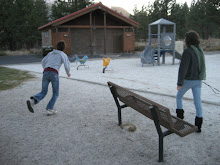Java: Try...Catch...Finally Flow
Note to self:
JAVA WILL ALWAYS EXECUTE THE FINALLY BLOCK*.
Hence, this code will work:
public static void main(String[] args)
throws Throwable {
try {
if (true) throw new RuntimeException("WOWZA!");
} catch (Exception e) {
throw e;
} finally {
System.out.println("REACHED!");
}
}
Yes, Java's output stream will read "REACHED," followed by the exception trace.
Even this code will work, and the finally block will be reached:
public String getString() {
try {
if (true) throw new RuntimeException("NOOOOOOOOOOO!");
return "STRING";
} catch (Exception e) {
return null;
} finally {
System.out.println("REACHED!");
}
}
Hope this helps someone out there.
* The only time Java will not execute a finally block is when it can't: eg when the JVM is shut down or the current thread is killed outright.
JAVA WILL ALWAYS EXECUTE THE FINALLY BLOCK*.
Hence, this code will work:
public static void main(String[] args)
throws Throwable {
try {
if (true) throw new RuntimeException("WOWZA!");
} catch (Exception e) {
throw e;
} finally {
System.out.println("REACHED!");
}
}
Yes, Java's output stream will read "REACHED," followed by the exception trace.
Even this code will work, and the finally block will be reached:
public String getString() {
try {
if (true) throw new RuntimeException("NOOOOOOOOOOO!");
return "STRING";
} catch (Exception e) {
return null;
} finally {
System.out.println("REACHED!");
}
}
Hope this helps someone out there.
* The only time Java will not execute a finally block is when it can't: eg when the JVM is shut down or the current thread is killed outright.
Labels: java
